I don’t have decades of experience as a particular kind of biographer. I’ve written two biographies about rock bands, Marillion and Rush, the first of which I fully updated because I didn’t like the first version; I’ve co-written a (poorly-titled) book on IT — “The Technology Garden” — which involved numerous interviews; and indeed my day job involves interviewing people and writing down their backgrounds, thoughts and aspirations; I assisted Mike Oldfield in writing his autobiography; and I’ve written a hefty part of a novelisation of the life and times of the violinist, Paganini.
So, if life is indeed a journey, I’m perhaps a little further down the road than others — what I can do is pull out some common threads from these efforts. With this in mind, here’s my five lessons gleaned from writing biographies.
Almost inevitably, I will be touching on my own story (cf Rule Two) so I’m going to get a few bits out of the way before I start: first, a ‘classical’ education and a general bookworm nature introduced me to a love of language; second that I didn’t write anything beyond computer code until 1994, when I was encouraged to put an article together by a colleague, David Herz (and thus started two decades of self doubt, a point to which I will return); third, the consulting firm I worked for next had a stringent (a.k.a. bruising) editorial process for its reports; fourth, in 1999 I was involved in the launch of one of the first blogging sites, IT-Director.com, which required the ‘duty’ writer to churn out three articles a day. All in all, by the time I got to my mid-life crisis, the written word held no fear for me.
I could draw out all kinds of lessons about writing in general from that lot, which I will summarise in two ways: the first is that, if I didn’t do ten thousand hours, I am reasonably certain I have generated at least a million words — it’s the only way to hone the craft. As for the second, I refer the kind reader/audience to the wise words of my good friend Karin Breiter, who had to listen to my existential rants about whether I could deliver something of value. “Shut up and write,” she told me, so, I did.
The following, then, are lessons learned specifically from, and about biography.
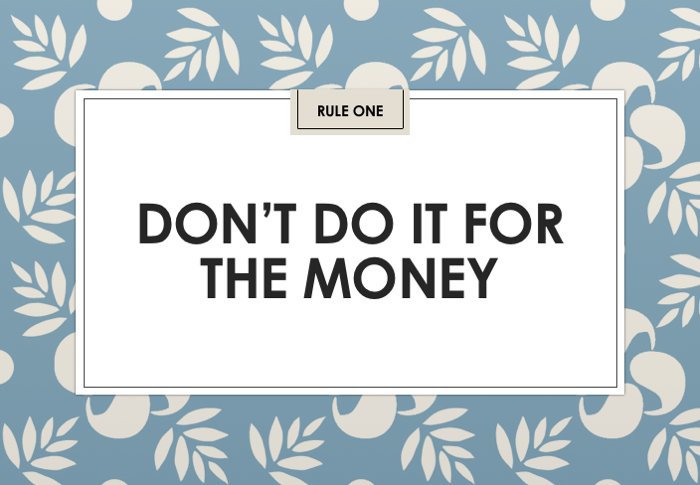
Rule One. Don’t do it for the money
My first biography was about Marillion — having hit life’s wall, I decided to get back into music and then to do something for myself. I’d come up with the madcap idea of writing a book about the band (I’d also figured out it was a good way to deal with what was turning into an obsession, to channel my energies — little did I know that’s exactly what obsessive people do, more on this later).
I met the keyboardist, Mark Kelly, before a gig and thrown the idea out there. “Sure, why not!” he said in apparent endorsement — I was later to learn he says that about anything new and out there. Still, it was the hook I needed. So, yes, I picked that target, and I didn’t do it for the money — I gave all the royalties to charity, largely through guilt at profiting from the true stories of others, and also if I’m honest as it made for an easier opener.
Why is this important? Because since then, when I have actually worked out the revenue vs effort, and it doesn’t stack up. Even with the endorsement of a popular band, using a standard royalty model the whole thing made about seven thousand pounds — that’s for several months of effort. Following the experience, I was offered opportunities to work with other bands but no amount of maths would deliver more than something roughly equivalent to the minimum wage per hour of effort, however interesting the stories might be (the world is chock-full of fascinating stories, but that doesn’t mean people want to read them).
Yes, this is a standard piece of advice for any writer — perhaps the biography spin is that you can’t expect something to be any more lucrative just because it is about someone well known, or an interesting topic. I do know people who have generated a living out of biographies, largely through the standard long-tail model of writing lots of them.
A final point on the topic of money is — plan to pay the photographers, they are in the same boat as you.
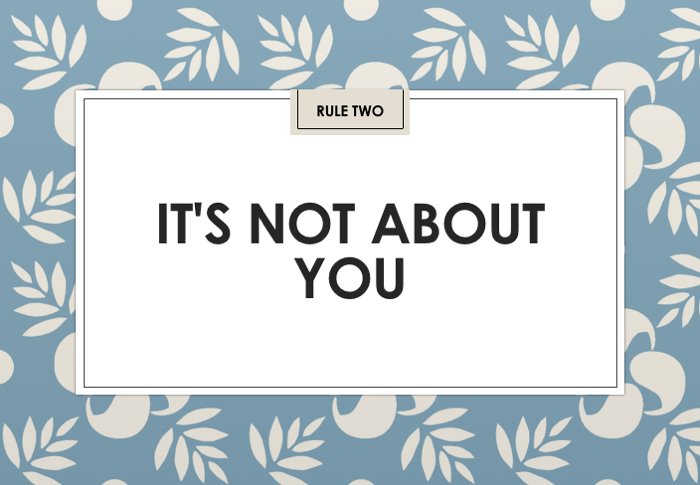
Rule Two. It’s not about you
This may appear obvious, and to a literary audience unnecessary, and indeed (given the fact I’ve just been talking about my own experiences) potentially hypocritical but let’s look at this. A ‘classic’ example of how not to write a biography is someone else’s past history of Rush, which somehow, inexplicably, shifts from being about the band to being about the author’s experiences with the band. How does this happen? The answer lies deep-rooted in our psychology, which is why it’s worth bringing up.
Fact: authors (including biographers) are obsessive. They need to be: when people say they have a book inside them, they probably mean they have a good idea and about ten to twenty thousand words worth of effort. Getting beyond thirty is a more than a chore, and the real chasm is at around fifty — indeed, without having publicly announced the first book I wrote, I’m not sure I would have ever finished it.
The trick, therefore, is to use this obsession as an asset, and to minimise any less positive effects. A good biographer is a quiet servant, a butler, whose job is to ensure that the subject’s best interests are met; or a detective, or a scientist, who needs to stand by and let the facts do the talking. We might all want to be pundits or columnists, and boy, do we have interesting things to say, right? — but within the biography is not the place. All the same and as we will see, it is important to have a view, a ‘take’ on events. Let’s come to that.
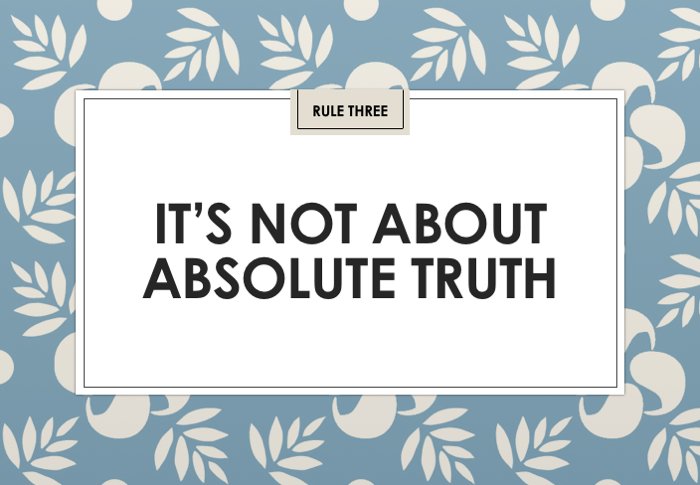
Rule Three: It’s not about absolute truth
Very early on in my biographical journey, I had to come to terms with the fact that I was going to be working with an incomplete set of information. By way of analogy, I consider myself lucky that when I undertook jury service, my case was, essentially, a punch-up at a wedding. “Lucky” because it could have been several weeks of throughly dull corporate fraud, or something harrowing like the death of a child.
As it was, it involved several people entering the dock and trying to tell their version of the alcohol-fuelled events: suffice to say the details very quickly diverged. Biography is a lot like that courtroom experience: people are always keen to put their spin on history, missing out details or even pulling them in, conflating multiple events, incorporating explanations and justifications and so on. The biographer’s job becomes that of creating a coherent narrative, triangulating, extrapolating and gap-filling.
It’s a matter of judgement: for example, when I wrote the Rush book I took the leap of faith that the guitarist really did detest the increased use of keyboards. Turns out I was right on that occasion, but equally, it’s a risk. As well as triangulation, there are other ways of managing this risk. Not least, planning to speak to as many people as possible, or reviewing other material — even ghost-writers can read other biographies or have off-the-record chats to fill in details.
While it may be uncomfortable, it’s worth asking the harder questions, which requires a level of rapport. Start from the point of view that you need to get endorsement or at least confirmation, and work from there: whether you decide to get a biography authorised, it will still need to be defensible (we have laws about that sort of thing). This goes for every quote, not just your own personal interviews.
In parallel, you can plan for both scope and level. Not all biography needs to be exhaustive, or indeed should be. Perhaps a subject’s five years in India were the most boring times ever, or perhaps that period deserves a book to itself.
Scope is very important: you may know what this is in advance, or you may find it out as you work through the material you uncover. And similarly, you will need to decide the level of detail you are working at, in temporal or other terms — is this a blow by blow account, or a broad history? You should probably not reach the half way point without having made a decision on both scope and level, as anything outside of this will be wasted effort.
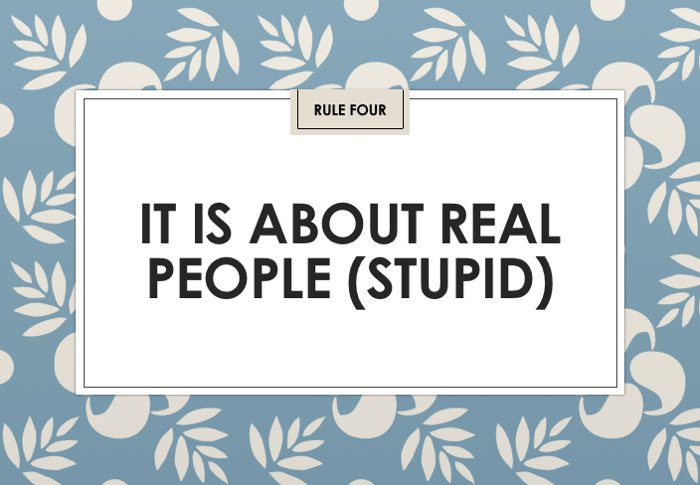
Rule Four: It is about real people (stupid)
This brings to the next point, and a thought experiment. Imagine you’re just going about your normal day, it’s a Saturday morning, say, so you’ve got a bit of time on your hands but have a bunch of things you’d like to get round to. There’s a knock on the door, which you answer. Somebody you have never met, let’s say a chap, unshaven and a bit shabby, introduces himself and, with little warning, asks you about your marriage, or your finances, or your childhood. Not only that, but they intimate some kind of threat, perhaps they have spoken to someone else about it and want to hear your side.
Feeling uncomfortable? Now imagine yourself as someone asking what you thought was a perfectly reasonable set of questions and wondering why you are getting short shrift. And remember that thing about obsession and therefore forgetting that you are potentially rubbing salt into wounds, however well-meaning you might be.
Alongside sensitivity and empathy, remember that other thing, about risk. At the end of the day, whatever your motivations, your job is to capture a bunch of information from a pool of people (wide or narrow) and arrange it in a coherent manner. You can do yourself a lot of favours by not being that chap, by preparing for meetings, informing people in advance, putting them at their ease, looking smart and giving them confidence, and so on.
In the case of Rush, I unthinkingly spoke to a friend of the band about writing a book, mentioning that I had written the authorised book on Marillion. What he heard was that I was writing the authorised book of Rush — which he reported to the band. It was enough to bring the shutters down on the whole project. Lesson learned, but the hard way.
This also brings to the importance of fact-checking. Another salutary tale was a single, missing word in the original Marillion biography: when Fish left the band in 1989, much of the anguish was caused about how revenues were split between band members. When documenting this, I wrote “50% of the royalties” rather than “50% of the publishing royalties” (i.e. a much smaller overall figure).
In that single word from my perspective, were no end of arguments, cold silences, meetings, astonishing legal fees and other life-changing moments for the band members. One word, big impact — and a major motivation for re-issuing the biography.
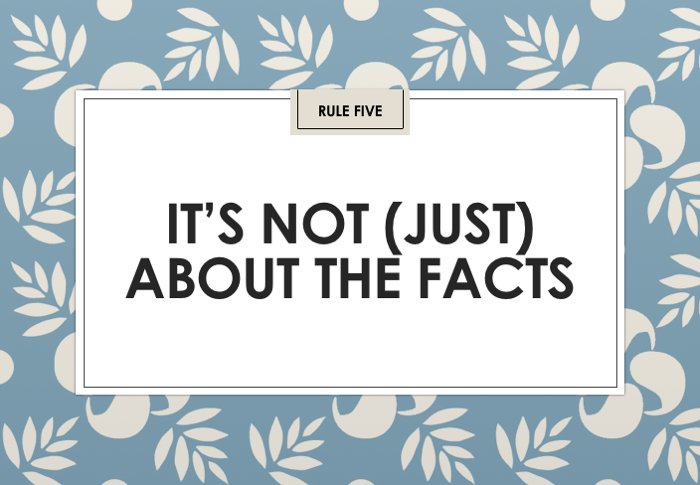
Rule Five: Ultimately, it’s not (just) about the facts
At the same time, your job is not (only) to capture a part of history but also to inspire and enthral, to have a reader turning pages wanting to know what happens next. The late, wonderful Sean Body, the self-styled ‘big cheese’ at Helter Skelter Publishing, he who gave me my break and mentored me through the writing process, told me of the dangers of writing album-tour-album style music biographies. Not only are these inevitably superficial (does anyone actually think that musicians go into cold-store outside of these cycles?) but they are also incredibly dull. I still have his copy of Long time Gone; Scar Tissue is another example of a great autobiography. This same principle applies to business books, to any subject area for that matter… why do you think Malcolm Gladwell is so popular?
Facts are interesting and important, but they should be subordinate to narrative. Where you don’t know the absolute sequence of events for example, you can use a bit of license in how you arrange them — take a leaf from Bernard Cornwell, or indeed, Ken Follett, both of which will add a note about how they may not have stuck to a strict sequence (and their books are all the better for it).
You can, if you wish, adopt a novel-type structure, with all of its twists and turns. Of course, if this starts to distort reality, that is not a good thing. However, if the historical tale actually does snatch victory from the jaws of defeat, or otherwise reflect a handy plot device, all the better for bringing that out. This is ultimately what sets apart a great biography from a mere retelling of the facts; it also creates the perfect foil against the press and Amazon reviewers who will, inevitably, know more about the subject than the author. Within the process, your job is to collect as much information as you need about the subject according to the scope and level you have set, but its output should be a joy to read.
Ultimately, and here’s the rub, all writers are storytellers, and all storytellers are biographers. Tolkien once said, “stories are spells”: we need to be careful how we cast them, therefore. I hope this has helped anyone thinking of writing a biography, and I welcome any feedback.
This article first published on Medium.